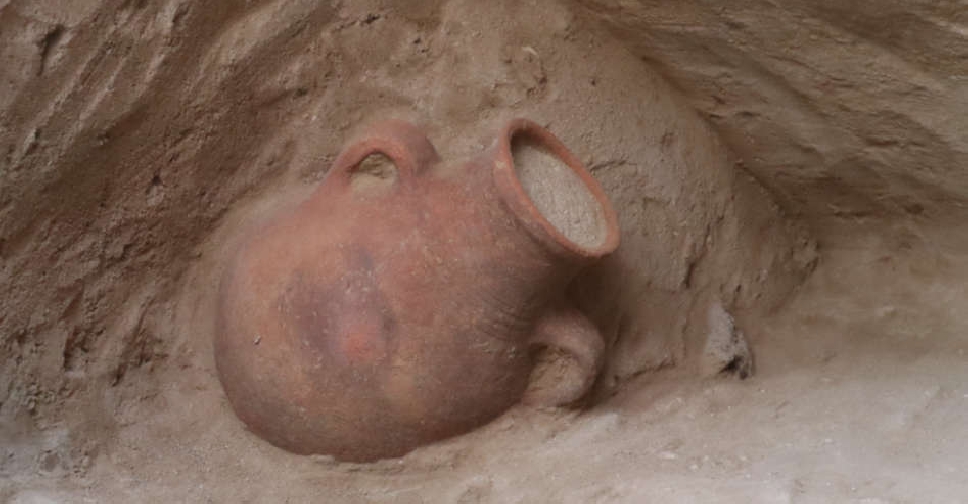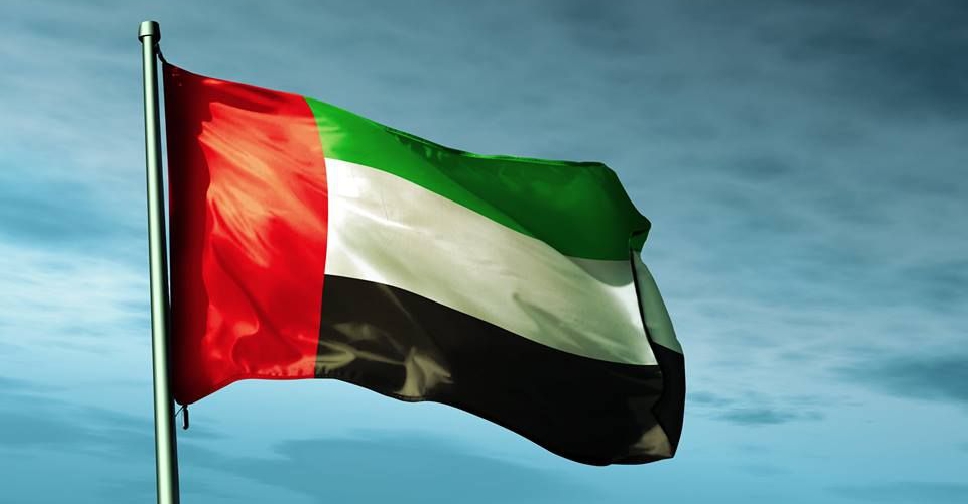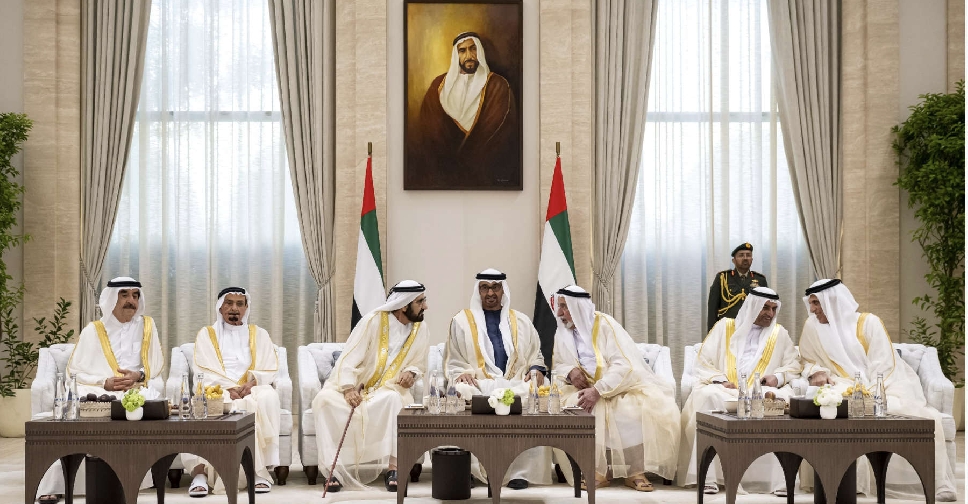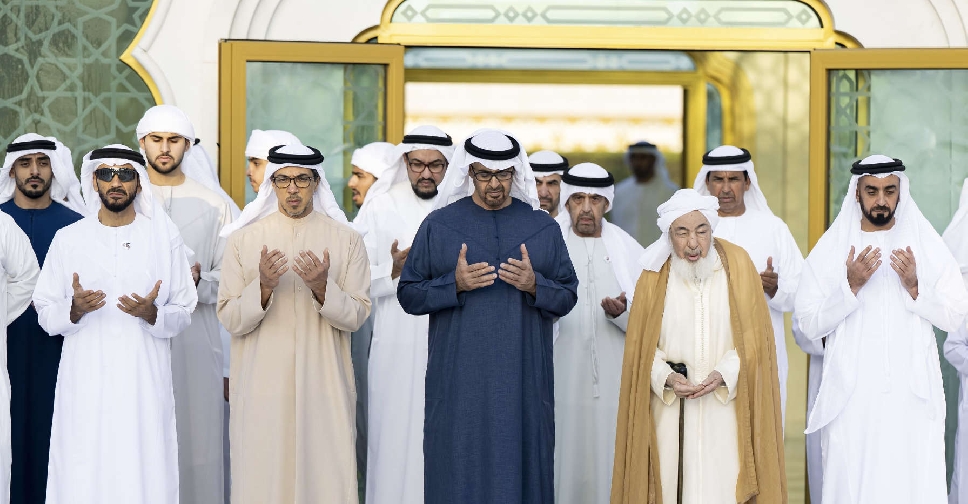
New archaeological discoveries have been made in Al Ain, including sites and artefacts from the Iron Age and the Pre-Islamic period, covering a time span from approximately 1300 BCE to 600 CE.
The Department of Culture and Tourism – Abu Dhabi's (DCT) archaeologists unearthed significant finds during excavations of part of a Late Pre-Islamic (300 BCE-300 CE) cemetery encountered during the upgrading of roads and infrastructure in Al Ain's Kuwaitat area.
Around 20 individual graves were uncovered, producing some well-preserved objects, including ceramics, bronze bowls and other glass and alabaster vessels.
Substantial quantities of iron weaponry was also found in the graves including arrows, spears and a number of swords.
The existence of a cemetery suggests a settlement of the same period was possibly located nearby, and the presence of deep underground-water channels (aflaj) in this area provides further evidence for the creation of the nearby Al Ain Oasis.
.@dctabudhabi has made new archaeological discoveries in the emirate from the Iron Age and Pre-Islamic period. The recent discoveries are the result of DCT Abu Dhabi’s ongoing efforts to further knowledge of the UAE’s history and safeguard its cultural heritage. pic.twitter.com/e8TaPVyNRO
— مكتب أبوظبي الإعلامي (@ADMediaOffice) June 16, 2023
Further antiquities were also uncovered during a project along an 11.5 km stretch of Al Khrais area.
These include an Iron Age cemetery containing a monumental stone tomb and at least 35 graves.
Another area revealed pre-Islamic tombs, one containing a cache of iron weaponry, in addition to more than 50 ancient aflaj of various dates and construction techniques, evidence of different phases of Iron Age agriculture and the organisation of irrigation systems and agricultural plots.
"We are making significant contributions to knowledge of life in the region during time periods about which little has been known, for example, proof that early settlers in this land implemented agricultural systems far earlier than previously thought," said Mohamed Khalifa Al Mubarak, Chairman of DCT Abu Dhabi.
"Through these undertakings, we continue to obtain a more complete picture of Abu Dhabi’s past, bolstering our pride in the achievements of our ancestors and making valuable contributions to regional and worldwide scientific discourse," he added.
Artefacts recovered include ceramics, decorated soft stone vessels, jewellery, shells, metals, weapons, and other objects found in graves and tombs.
Extensive soil samples were taken from the site, which will provide further information on the use of the ancient environment and the type of crops being cultivated in the Iron Age.
The Pre-Islamic discoveries provide evidence that a period which until recently was relatively absent from the archaeological records in Al Ain is not only present, but seemingly widespread.
“The exciting archaeological discoveries in Al Ain are the result of ongoing efforts to uncover and protect the rich history of the emirate and the wider nation. DCT Abu Dhabi is making significant contributions to knowledge about life in the region during time periods pic.twitter.com/LTDCRPLUez
— Department of Culture and Tourism - Abu Dhabi (@dctabudhabi) June 16, 2023





 New Syrian government welcomed by UAE
New Syrian government welcomed by UAE
 UAE President receives Rulers, Crown Princes, Deputy Rulers
UAE President receives Rulers, Crown Princes, Deputy Rulers
 UAE leaders share messages on the occasion of Eid Al-Fitr
UAE leaders share messages on the occasion of Eid Al-Fitr
 UAE President performs Eid Al-Fitr prayer at Sheikh Zayed Grand Mosque
UAE President performs Eid Al-Fitr prayer at Sheikh Zayed Grand Mosque


